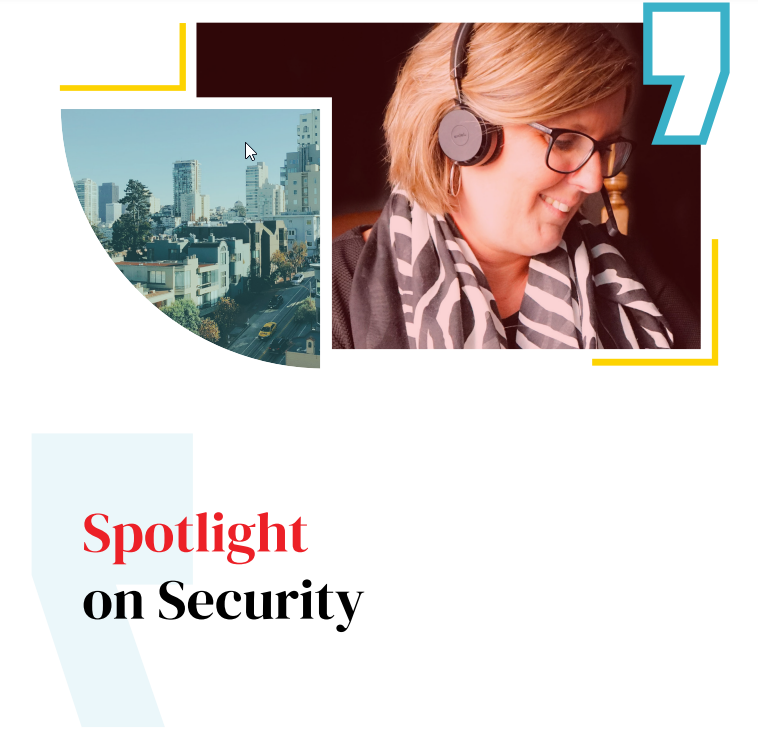There are 3 foundational reasons why providing non-native English speakers with interpretation support is so critical in community health:
- Improved effectiveness of care due to improved understanding
- Enhanced patient experience
- Stronger advocacy and improved support of medical needs
To meet these goals, easy access to a large pool of skilled interpreters to help convey medical information is a must.
Language skills are only part of the picture. Interpreters working in healthcare need specialized training, cultural awareness, and a professional setup to handle the sensitive, often urgent communication that community health requires. Simply being bilingual isn’t enough to make someone an effective interpreter.
So how can you tell if your language service provider offers interpreters who meet these high standards? Let’s examine what it takes to be a professional interpreter and how to choose an interpreting provider who can provide your patients with the accurate and culturally sensitive communication they deserve.
Six Essential Qualities of a Professional Phone or Video Interpreter
Delivering clear, compassionate language support in community health settings takes interpreters with strong expertise, skill, and a deep sense of commitment. Here are six must-have qualities in a professional over-the-phone or video remote interpreter:
- Linguistic Knowledge
Interpreters need more than just language fluency—they must understand grammar, specialized terms, and regional dialects to convey meaning accurately, and they must be able to do it fast, thinking quickly on their feet to keep the conversation flowing. Someone who is bilingual is not necessarily a linguist. - Subject Matter Expertise
Professional healthcare interpreters must have a deep understanding of medical terminology and procedures so that they can interpret confidently without pausing to look up terms.
Regulatory knowledge—such as HIPAA compliance—is equally important. Interpreters must know how to protect patient privacy and follow industry guidelines throughout every interaction. - Cultural Understanding
In community health, cultural awareness goes a long way towards improving outcomes and giving patients a voice. Culturally aware interpreters relay the meaning of words in a way that respects patients’ backgrounds and viewpoints, and they understand the cultural context needed to communicate health information and treatment plans effectively, avoiding misunderstandings and missteps that could impact patient care.
For example, different cultures view mental health and mental health services differently, and they talk about these services differently as a result. For example, in Hispanic and Latino patients, anxiety and post-traumatic stress may present as a syndrome called ataques de nervios or “attack of the nerves”. Words like susto (scare) and meido (fear) may be used to describe not just a frightening experience but its lingering impacts, like feeling tired or weak. An interpreter who understands this is more capable of interpreting in a way that will be more effective with the patient or family. - Active Listening Skills
Active listening is an essential first step in providing high-quality interpretation and providing the best customer service. A skilled interpreter focuses on every detail, especially in fast-paced situations. Professional interpreters also avoid interrupting the conversation flow, stepping in only if clarification is needed, so patients and providers can communicate smoothly. - Specialization and Training
Successful interpreters who are able to relay information that improves outcomes and the patient experience have deep expertise, including specialization in the area of community health. Many have advanced training in interpretation.
Working with an LSP should mean access to interpreters who are experienced and vetted as specialists—an important indicator of quality for community health organizations. - Professionalism
For over-the-phone and video remote interpreting, interpreters must be willing to take measures to guarantee a quiet space, without distracting background noises like barking dogs or household noise. And they must have the technology in place to provide audio or video calls that are clear and crisp, with no lag time or delays connecting.
Now that you know what to expect from a professional interpreter, how do you make sure you’re getting it?

How to Make Sure Your LSP Provides High-Quality Interpreters
While some community health organizations source their own interpreters, partnering with a language service provider (LSP) is an important step toward covering all the languages and volumes needed to support patients and community members. But you have to be able to trust them to deliver a consistent experience. Here’s what to look for to make sure your LSP delivers skilled, ethical, and qualified interpreters every time—and how BIG Language Solutions makes quality a priority.
Interpreter Selection and Training
BIG Language Solutions’ interpreter selection process is thorough, focusing on finding interpreters who meet high standards for linguistic skill, industry knowledge, and professionalism. This starts with detailed screening and testing for fluency in both languages, knowledge of field-specific terminology, and the ability to communicate clearly and accurately in high-pressure situations.
When necessary to comply with regulations and guarantee quality, we verify each interpreter’s qualifications to handle sensitive, complex conversations.
Lastly, through continuous training, we help interpreters keep their skills sharp and aligned with any changes in terminology, regulations, or industry practices.
Ethics and Professional Standards
In high-stakes environments like healthcare, interpreters’ ethics and professionalism can directly impact clinical outcomes and improve patient experience.
At BIG Language Solutions, our interpreters follow a strict code of ethics to protect confidentiality, stay impartial, and deliver accurate information in every interaction. Here’s how these principles work in practice:
- Confidentiality: Protecting privacy is essential, especially in healthcare. Our interpreters keep all shared information confidential, helping patients feel safe and open to communicate.
- Impartiality: Remaining neutral is key. Our interpreters avoid any actions or expressions that might influence the outcome of a conversation. This neutrality helps make sure that all parties are treated fairly.
- Accuracy: Every word counts, especially when people’s health is on the line. Our interpreters convey every detail as clearly and completely as possible, without adding, omitting, or altering information—even if the content is sensitive. This accuracy is crucial to help patients understand their diagnoses and treatment plans.
- Professionalism and respect: Our interpreters respect everyone involved, keeping their focus on facilitating communication without giving advice or sharing personal opinions. In every interaction, they set a professional tone and treat each person with dignity.
We know that ethical standards are essential to providing reliable, effective interpretation. We reinforce these principles with ongoing training, so you can feel confident that our interpreters represent your organization with integrity and professionalism in every conversation.
Quality Assurance
BIG Language Solutions’ 10-step quality framework monitors every aspect of our over-the-phone interpreting (OPI) services to keep them consistently effective and reliable. For example, our processes ensure the following:
- Quick connection times: Calls are answered within seconds and connected quickly to an interpreter, reducing wait times and helping your patients communicate without delay.
- Ongoing call monitoring: With AI-supported call monitoring, we continually assess interpreter performance for clarity, professionalism, and compliance with ethical standards. Feedback is used to guide interpreter coaching and maintain high-quality service.
- Standard greeting and closing protocols: Interpreters introduce themselves clearly and close calls respectfully, creating a smooth, respectful experience for every participant.
With BIG Language Solutions, you gain access to vetted, experienced, professionally trained interpreters who uphold ethical standards and are ready to support your patients and staff.
Make the Switch to Higher-Quality Interpreting Today
Reliable, high-quality interpreting is essential for patient care, advocacy, and patient experience. If your current provider isn’t meeting these standards, BIG Language Solutions is ready to step in. Our interpreters bring professionalism, ethical integrity, and a commitment to quality in every interaction, all backed by our 10-step quality assurance framework. Plus, we make switching easy—you can be up and running with BIG Language Solutions in as little as 24 hours.
Ready to improve your language services? Contact us today to see how we can support your team and strengthen your patient care.








